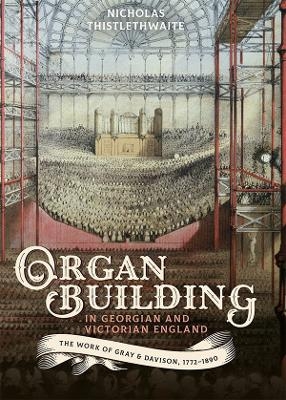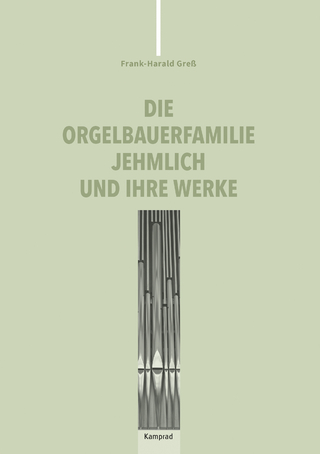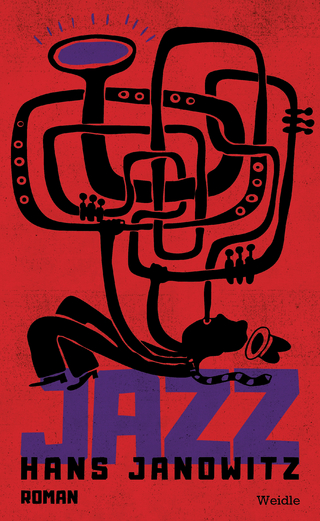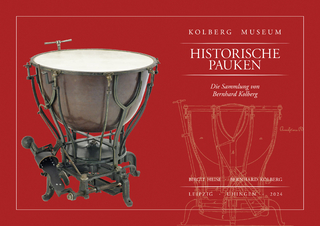
Organ-building in Georgian and Victorian England
The Work of Gray & Davison, 1772-1890
Seiten
2020
The Boydell Press (Verlag)
978-1-78327-467-3 (ISBN)
The Boydell Press (Verlag)
978-1-78327-467-3 (ISBN)
The London firm of Gray (later Gray & Davison) was one of Britain's leading organ-makers between the 1790s and the 1880s.
Established for the building of keyboard instruments, by the mid-1790s the workshop of brothers Robert and William Gray had become one of the leading organ-makers in London, with instruments in St Paul's, Covent Garden and St Martin-in-the-Fields. Under William's son John Gray, the firm built some of the largest English organs of the 1820s and 1830s, as well as exporting major instruments to Boston and Charleston in the United States.
In the early 1840s, with the marriage of John Gray's daughter to Frederick Davison - a member of the circle of Bach-enthusiasts around the composer Samuel Wesley - the firm became 'Gray & Davison'. Davison was a progressive figure who reformed workshop practices, commissioned a purpose-built organ factory in Euston Road and opened a branch workshop in Liverpool to exploit the booming market for church organs in Lancashire and the north-west. Under Davison's management,the firm was responsible for significant mechanical and musical innovations, especially in the design of concert organs. Instruments such as those built in the 1850s for Glasgow City Hall, the Crystal Palace and Leeds Town Hall were heavily influenced by contemporary French practice; they were designed to perform a repertoire dominated by orchestral transcriptions. Many of the instruments made by the firm have been lost or altered; but the surviving organs in St Anne, Limehouse (1851), Usk Parish Church (1861) and Clumber Chapel (1889) testify to the quality and importance of Gray & Davison's work.
This book charts the firm's history from its foundation in 1772 to Frederick Davison's death in 1889. At the same time, it describes changes in musical taste and liturgical use and explores such topics as provincial music festivals, the town hall organ, domestic music-making and popular entertainment, the building of churches and the impact on church music of the Evangelical and Tractarian movements. It will appeal to organ aficionados interested in the evolution of the English organ in the later Georgian and Victorian eras, as well as other music scholars and cultural historians.
Established for the building of keyboard instruments, by the mid-1790s the workshop of brothers Robert and William Gray had become one of the leading organ-makers in London, with instruments in St Paul's, Covent Garden and St Martin-in-the-Fields. Under William's son John Gray, the firm built some of the largest English organs of the 1820s and 1830s, as well as exporting major instruments to Boston and Charleston in the United States.
In the early 1840s, with the marriage of John Gray's daughter to Frederick Davison - a member of the circle of Bach-enthusiasts around the composer Samuel Wesley - the firm became 'Gray & Davison'. Davison was a progressive figure who reformed workshop practices, commissioned a purpose-built organ factory in Euston Road and opened a branch workshop in Liverpool to exploit the booming market for church organs in Lancashire and the north-west. Under Davison's management,the firm was responsible for significant mechanical and musical innovations, especially in the design of concert organs. Instruments such as those built in the 1850s for Glasgow City Hall, the Crystal Palace and Leeds Town Hall were heavily influenced by contemporary French practice; they were designed to perform a repertoire dominated by orchestral transcriptions. Many of the instruments made by the firm have been lost or altered; but the surviving organs in St Anne, Limehouse (1851), Usk Parish Church (1861) and Clumber Chapel (1889) testify to the quality and importance of Gray & Davison's work.
This book charts the firm's history from its foundation in 1772 to Frederick Davison's death in 1889. At the same time, it describes changes in musical taste and liturgical use and explores such topics as provincial music festivals, the town hall organ, domestic music-making and popular entertainment, the building of churches and the impact on church music of the Evangelical and Tractarian movements. It will appeal to organ aficionados interested in the evolution of the English organ in the later Georgian and Victorian eras, as well as other music scholars and cultural historians.
NICHOLAS THISTLETHWAITE has written extensively on the history of the English organ and other aspects of English church music, and his book, The making of the Victorian organ (1990) is recognised as the standard work on the subject. He has acted as consultant for the restoration and rebuilding of organs, most recently at St Edmundsbury Cathedral and Christ Church.
Introduction
PART I: The Grays
Beginnings
An expanding business: William Gray
'That good, honest, estimable man ... John Gray'
Instruments: 1772-1840
PART II: The Davisons
Frederick Davison
PART III: Gray & Davison
Gray & Davison
Frederick Davison: 'a very straightforward and respectable tradesman'
Limited Company: 1877 to 1890
Instruments: 1840-90
Epilogue
| Erscheinungsdatum | 29.01.2020 |
|---|---|
| Reihe/Serie | Music in Britain, 1600-2000 |
| Zusatzinfo | 99 b/w illus. |
| Verlagsort | Woodbridge |
| Sprache | englisch |
| Maße | 156 x 234 mm |
| Gewicht | 1 g |
| Themenwelt | Kunst / Musik / Theater ► Musik ► Instrumentenkunde |
| Kunst / Musik / Theater ► Musik ► Musikgeschichte | |
| Kunst / Musik / Theater ► Musik ► Musiktheorie / Musiklehre | |
| ISBN-10 | 1-78327-467-0 / 1783274670 |
| ISBN-13 | 978-1-78327-467-3 / 9781783274673 |
| Zustand | Neuware |
| Haben Sie eine Frage zum Produkt? |
Mehr entdecken
aus dem Bereich
aus dem Bereich
Roman
Buch | Hardcover (2024)
Wallstein Erfolgstitel - Belletristik und Sachbuch (Verlag)
20,00 €
die Sammlung von Bernhard Kolberg
Buch | Hardcover (2024)
E Reinhold (Verlag)
39,00 €


